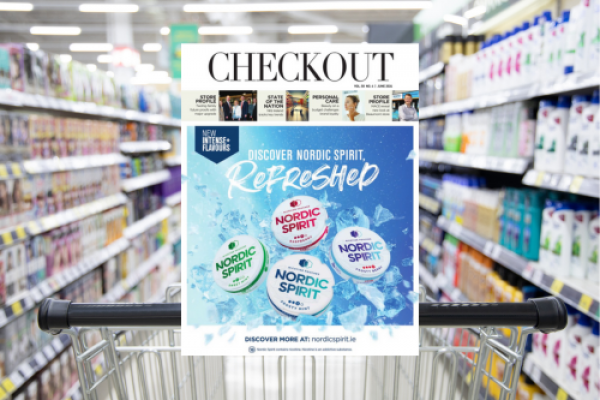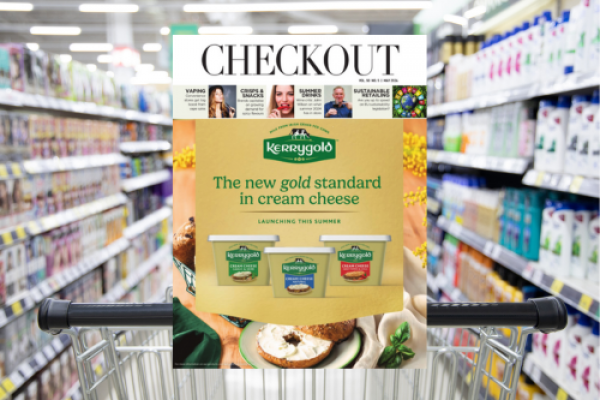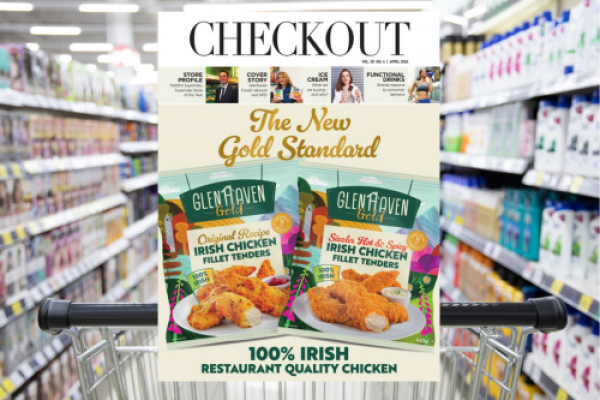Illicit trade is costing the economy as much as €1.5bn each year according to a new report published by Grant Thornton and Retail Ireland. Amanda Allen reports. This article originally appeared in the May 2013 edition of Checkout
Last month, as industry heads gathered in Dublin’s Conrad Hotel to receive an update on the ‘illicit’ trade in Ireland, no one was expecting good news. But perhaps the scale of the problem, and the fact that it is now costing the economy in the region of €1.5 billion each year, may have come as a shock to some. To give that figure some context, it’s the value of more than three ‘Croke Park 2’ agreements.
The report – Illicit Trade in Ireland: Uncovering the cost to the Irish economy – reviewed the fuel, tobacco, digital entertainment/software and pharmaceutical sectors.
Published by Retail Ireland and Grant Thornton, it outlines losses comprising an estimated €937 million in tax revenues lost by the Exchequer, and a further €547 million lost by retailers and intellectual property holders, such as record companies.
Opening proceedings, Brendan Foster, Partner at Grant Thornton, said that the illicit trade is costing the Exchequer hundreds of millions of euro at a time when every cent of tax revenue is vital to the recovery of the public finances. “Legitimate businesses are finding it impossible to compete against fraudulent goods being sold by organized criminal gangs whose illegal actions must be stamped out to avoid further business closures and job losses.”
According to the report, losses stemming from the illegal tobacco trade could be as much as €691 million. On top of the monetary loss, smuggling and counterfeiting of tobacco products provides a major source of revenue for criminal gangs and paramilitary organisations. Ireland is now one of the worst ranked countries in the EU in terms of the consumption of counterfeit and contraband tobacco products, coming in in fourth place after Latvia, Lithuania and Estonia.
The report states that Ireland currently has the second highest selling price of tobacco in the EU, largely the result of increases in the rate of excise between 2003 and 2012. Between 2001 and 2012, the total price of a packet of cigarettes has increased by 190% from €4.88 to €9.30 driving incentive for consumers to switch to the Black Market.
The report also outlines the detrimental effects this trend has had on retailers, stating that tobacco sales traditionally make up to 30% of the average newsagent turnover. Therefore, the loss of this revenue has ben a strong contributing factor to the decline of the industry. Retail sales in Ireland are down by 30% since their peak in 2008.
Recommendations put forward in the report were welcomed by attendees at the event, with overwhelming support in particular for increased penalties for those smuggling cigarettes. The report states increased resources are required to tackle specifically the organized criminal gangs that are driving the illicit trade in Ireland. In addition more punitive penalties, including the loss of licences for retailers, should be introduced for those that sell illicit tobacco. The report also states that any further excise increases, without additional enforcement and legislative measures, are likely to further boost illicit trade activities in Ireland.
Fuel Laundering
The report covers in detail the issue of illegal fuel laundering, which has had ramifications for the retail sector. Losses from fuel laundering and smuggling are estimated in the region of €466 million, largely due to illegal trade in ‘green’ agricultural diesel, which benefits from a lower rate of excise tax.
As with tobacco, the key driver in the increased purchase of illegal fuel has been the steady increase in fuel prices over the last decade – as of 27 December 2012, Ireland had the fourth highest price in the EU at the pump for both fuel and petrol.
Liam Mulcahy, Commercial Director of Topaz Energy Ltd, said the problem is made evident by the number of fuel sites reopening here: “Businesses that closed down for recessionary reasons are now reopening, how are they doing that? What’s their business model? Customers are filling their cars up and down this country and often don’t realize they are funding organized crime. [...] Additional resources are needed to help the authorities, which are doing stellar work. It’s on their agenda, they want to tackle the issue, and we want to help them with that.”
Closing proceedings, chairman of Retail Ireland, Frank Gleeson, said that the financial impact of the illicit trade identified in the report is even worse than suggested by previous research: “Whilst the Government has recognised the seriousness of the problem, there is a lot more that it could do to help Irish retailers who are suffering lost sales to illegal operators.
“Consumers also have a role to play in realising that buying cheaply priced goods sold informally or door-to-door is not a victimless crime, but one that is damaging the Irish economy and putting legitimate distributors out of business.”
Pictured at Grant Thornton and Retail Ireland’s recent Illicit Trade in Ireland conference at the Conrad Hotel, Dublin were (l to r): Michael McAteer, Partner at Grant Thornton; Brendan Foster, Partner at Grant Thornton; Lucinda Creighton, Minister for European Affairs; Frank Gleeson, Chairman of Retail Ireland; and Stephen Lynam, Director of Retail Ireland.
© 2013 - Checkout Magazine by Stephen Wynne-Jones









